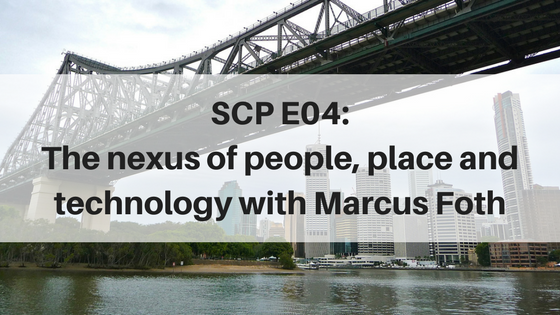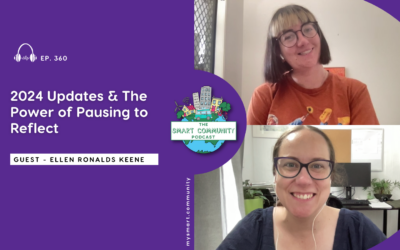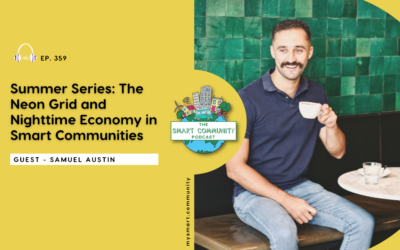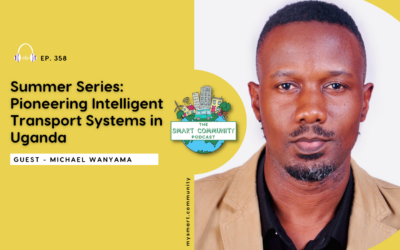In this episode of the Smart City Podcast, I interviewed founder and director of the Urban Informatics Research Lab at QUT in Brisbane, Marcus Foth. Although the term ‘Smart City’ wasn’t around, Marcus has been involved in this space for over 10 years, and worked in computer science before the internet became ubiquitous. He is passionate about bringing together people, places and technology in a user centric approach. We discussed a lot of exciting topics, including using technology to make a difference, how Australia is moving up in the Smart City ranks, and how climate change and sustainability need to be at the heart of a Smart City. We also discussed the next generation of personalised journey planners that would see me bumping into or avoiding my Facebook friends on my daily commute depending on how social I’m feeling that day. As well as this, Marcus introduces a number of global networks in the Smart City space that you, as the Smart City Collective, can check out and get involved with.
What we cover in this episode:
- Marcus’s background studying computer science in Germany
- His interest in the built environment and multi- and trans-disciplinary research approaches
- How the Urban Informatics/Smart City conversation has evolved in the last decade
- Why Marcus doesn’t subscribe to the dichotomy of the virtual and the real, digital and analog
- The user-centric approach to urban planning decision making and the role technology has on enhancing community engagement
- What technologies Marcus is interested in and excited about today
- The projects Marcus is working on right now
- Possibilities in optimising journey planners for variables other than just speed or distance
- The need for algorithms to enhance diversity rather than familiarity in order to create innovation
- How a diverse understanding of ‘city’ translates into other urban and regional contexts
- Australia’s high level of interest in the Smart City agenda
- Why a mature view of Smart City looks at the business and social piece as well as the technology piece
- The advantages to trialing Smart City strategies in smaller local Councils
- The importance of better linkages between Universities and governments
- What we can learn from places like Canada’s City Studio Vancouver in fostering collaboration between Universities and local government
- The reason Australian examples are increasingly being used on the international stage
- The work of the Open and Agile Smart Cities network
- Why Marcus believes the current climate change and sustainability conversation is too superficial and in fact not always genuine
“One thing that I’ve learned in all of this time is that we shouldn’t allow ourselves to be blinded by the shiny new objects and these different devices. It’s really important to focus on actual problem spaces and opportunity spaces, and then think of technology as a means to make a difference.”
“We are less likely to be exposed to new places, we are less likely to discover new people and new ideas. So that is particularly problematic when Australian cities want to be innovative and want to make the most of a national innovation agenda because Innovation thrives on diversity. If the algorithms that are in place are sorting us into certain categories, it actually keeps us apart.”
Links to some of the topics we discussed:
- OASC http://www.oascities.org or https://theodi.org.au/open-agile-smart-cities/
- Cobalt https://www.washingtonpost.com/graphics/business/batteries/congo-cobalt-mining-for-lithium-ion-battery/
- E-waste https://interactive.aljazeera.com/aje/2015/ewaste/
Connect with Marcus:
You can connect with Marcus on Twitter as @sunday9pm @urbaninf or @QUTdesign
Check out his writings on this, for academic work see https://www.vrolik.de/publications/
and for shorter pieces see https://theconversation.com/profiles/marcus-foth-199317/articles
You can also find out more about Marcus’ work at QUT, Brisbane via these websites https://www.urbaninformatics.net and http://qut.design
Connect with Zoe:
Connect with me via email: hello@mysmart.community
Connect with My Smart Community via LinkedIn or Twitter and watch on YouTube
Podcast Production by Perk Digital






0 Comments
Trackbacks/Pingbacks